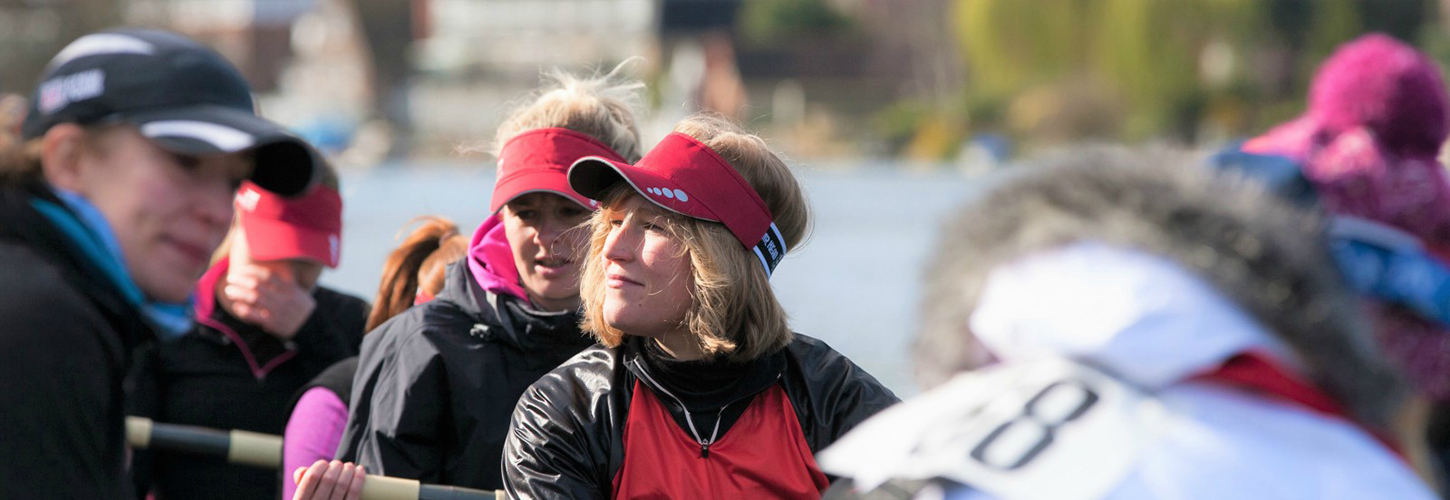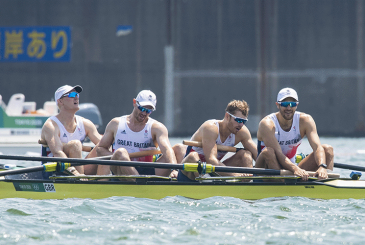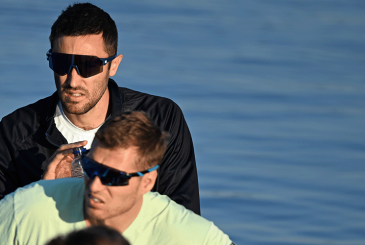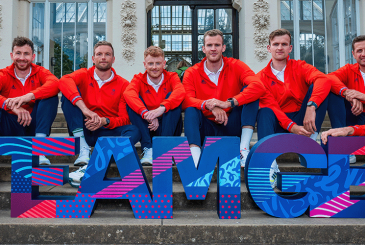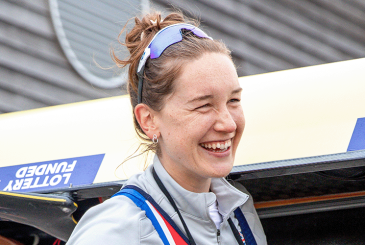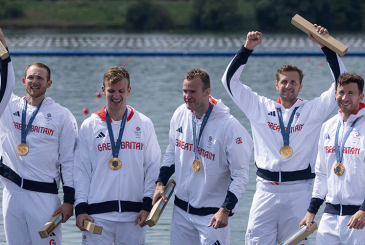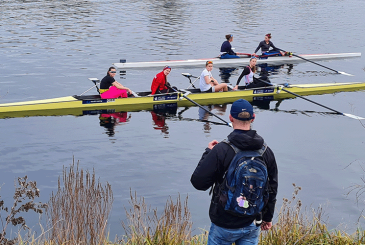Mental preparation can improve your head racing performance, according to Dr Chris Shambrook, the GB Rowing Team’s sports psychologist. Nick Hartland reports
Dr Chris Shambrook advises the GB Rowing Team and his advice might help your crew’s performance too.
“Get the mental things in place and it will help you feel more in control before the race, more confident during it, and more able to learn afterwards,” he says.
Here are his top six tips for gaining a mental edge in the glow of the competition headlights.
Tip 1: Control the controllables
Rowers should be really clear about their pre-race routine, so they can be “consistent in an inconsistent environment”, surrounded by the chaos of rowers and boats.
“Think about what you want to focus on before boating, when there’s lots going on,” says Shambrook.
“Timings are important – changing, rigging, warming up, boating – and know where you need to be and what you need to be doing at a certain time. Give yourself wriggle room if something happens so you can quickly regain control of your routine.
“Go over your pre-race plan, talk about it among the crew – rehearse it. Build trust into the plan and stay focused.”
Tip 2: Play the ‘what if’ game
To boost confidence ahead of race day, Shambrook suggests that each crew member describes a scenario involving the unexpected, off or on the water, negative or positive. Such as ‘what if we can’t find an oar?’, ‘what if someone’s ill and we need a sub?’, ‘what if we start faster than expected?’
He adds: “As well as answering the questions, the crew will be more ready to respond to whatever happens – things going well and things going not so well – which is important for confidence.
“Shared action and decision-making can really help pull the crew together to work as one, bringing a commitment to the plan, which you will look to get back to if something untoward happens.”
To boost confidence ahead of race day, Shambrook suggests that each crew member describes an unexpected scenario
Tip 3: Play to your strengths
You must identify and use your strengths on race day, urges Shambrook, instead of dwelling on perceived weaknesses.
“If you have a strong mid-race rhythm, get clear in your head what that feels like, and get excited about using it, so you get maximum efficiency on each stroke.
“Got good endurance? Then think about committing to it and testing it to the limit. If you’ve a good change of pace, get excited about starting fast and responding to crews around you with pushes.
Tip 4: Stay in the moment
As the excitement builds, try and stay in the moment, focusing on one stroke at a time, says Shambrook.
Imagine a trampoline at the finish, and bounce it back into the boat and into the stroke you’re pulling
“Your mind will race ahead to the finish, but bounce it back to the moment you’re in. Be clear that if it wanders, you’ll keep bringing it back. Imagine a trampoline at the finish, and bounce it back into the boat and into the stroke you’re pulling.”
Tip 5: Commit to learning about yourself
Don’t heap pressure on yourself about your finish position – Shambrook says it’s more important to learn something from challenging yourself.
Give yourself the best chance of being the best version of yourself by looking to your race performance, rather than the result
“There’s all this pressure to get the best result, but think more about what challenge you want from the race, and commit to learning something by taking it on.
“Give yourself the best chance of being the best version of yourself by looking to your race performance, rather than the result.”
Tip 6: Look at the bigger picture
So what if you don’t get the result you want or weren’t in the top boat?
Then ahead of the regatta season you need to look at the bigger picture, says Shambrook.
Assess your performance compared to your ability rather than the outcome
“Sit down and ask yourself some questions – ‘Why do I row?’ ‘What do I enjoy about it?’ ‘What inspired me to start?’ ‘What opportunities have I got to learn about and develop myself?’
“Keep a sense of balance by being result agnostic – so neither positive or negative – and assess your performance compared to your ability rather than the outcome.
“Reviewing performance is important – even if you break the world record, you don’t want to stand still. That helps you to learn and to continue your development and enjoyment of the sport, and to remember why you started rowing in the first place.”
You can read more about Dr Chris Shambrook at planetk2.com and theperformanceroom.co.uk
This article first appeared in Rowing & Regatta magazine in February 2018.
Photo credit: Hamish Roots


